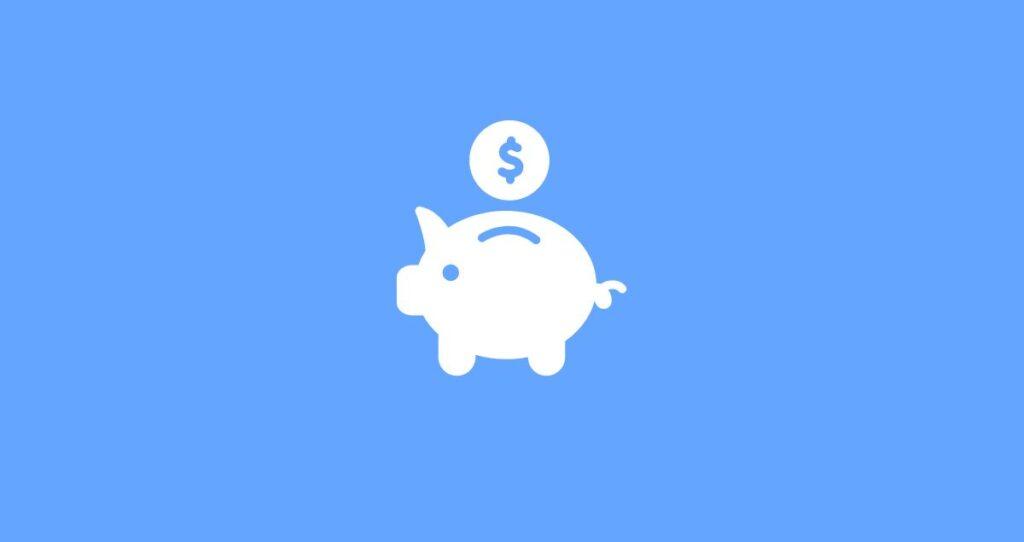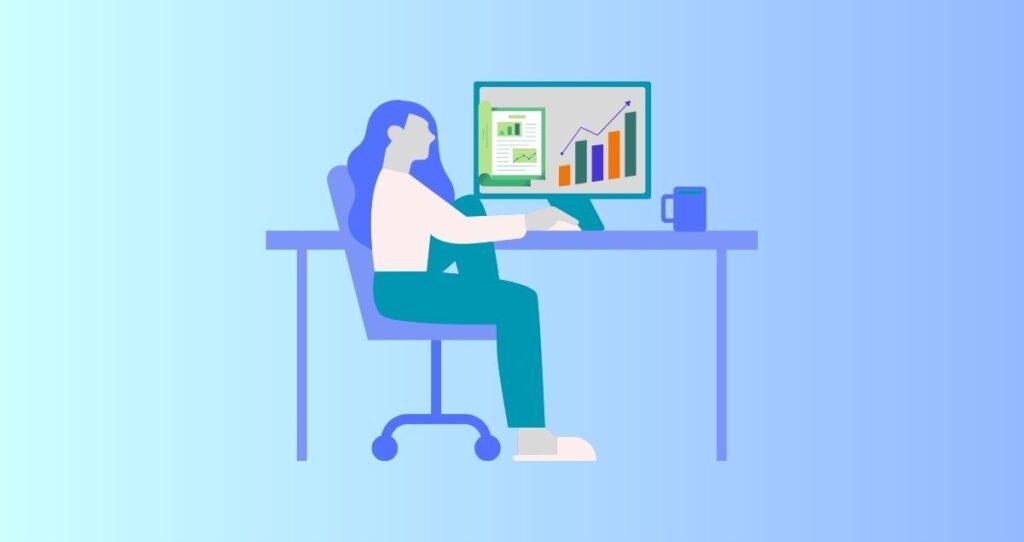Do you find yourself struggling to save money each month, despite your best efforts? If so, you’re not alone. Millions of people are living paycheck to paycheck and finding it difficult to break the cycle. In this article, we will take a closer look at the top five reasons why you might be having trouble saving money, and provide some practical tips for improving your financial situation.
Whether you’re drowning in debt or simply living beyond your means, we’ve got you covered.
Without further ado, let’s get started.
5 reasons why you can’t save money and are living paycheck to paycheck
If you are struggling to save money and wondering why your bank account is dry by the end of each month, this article was written with you in mind. To turn your finances around and start saving money, take advantage of the following money-saving tips and financial strategies.
1. You have too much debt or are trapped in debt cycles
One major reason why you can’t save money is that you have too much debt. High levels of debt, whether it’s credit card debt, student loans, personal loans, or a mortgage, can make it challenging to keep up with monthly payments and have any funds left over for savings. In fact, paying off debt should be a priority before saving money.
By paying off your debts especially high-interest loans such as credit card debts and personal loans, you end up reducing the interest charges. As a result, the assets in question cost you less money. This is a passive and indirect way to save money.
Aggressively pay off your debts if you can’t save money
Yes, debt is one of the biggest reasons you can’t save money. So, paying off your debts will automatically improve your savings and prevent you from living paycheck to paycheck. How do you start chipping away at your debt?
It’s important to create a budget and determine how much you can realistically allocate toward debt repayment each month. Consider consolidating high-interest debt into a lower-interest loan or credit card, or negotiating with creditors for a more manageable payment plan.
You can also use debt payment strategies such as the Debt Avalanche or Debt Snowball methods to manage and pay off your debts. Refinancing your loans could also be a viable option to lock in favorable terms and lower interest rates.
You might also like: 8 reasons why poor people stay poor
Also, avoid debt cycles
Another thing you must avoid that is probably making it harder to save money is debt cycles. Debt cycles happen when you borrow money to buy an asset and then take on more loans after paying off the first one.
Think of getting a car loan and spending 5 years to pay it off and then getting another car loan after the first one is paid off. Even if you trade in your first car for a reduced amount, you still get trapped in debt cycles that make it harder to save money. The interest charges and fees you pay on your loans could be your savings. But, now you can’t save money because your savings are being taken by the bank.
Remember, reducing your debt not only frees up more money for savings in the long run, but it also improves your credit score and overall financial health.
2. You are not tracking your expenses
One of the biggest obstacles to saving money is not tracking your expenses. If you don’t know where your money is going, it’s difficult to identify areas where you can cut back. Start by tracking every single purchase you make, whether it’s a pack of gum or a tank of gas. You can use a spreadsheet, an app, or even a simple pen and paper to keep track of your expenses.
Once you have a clear picture of your spending habits, you can start looking for ways to reduce your expenses. Are you eating out too often? Can you cut back on your subscription services? Small changes can add up over time and free up more money for savings.
If you can’t save money but want to find areas you can cut back to improve your savings, use this guide: 20 clever ways to reduce expenses and increase savings
However, if you find that you’re already living as frugally as possible and still can’t make ends meet, it may be time to consider increasing your income. In the next section, we’ll explore why your income may be holding you back from saving money.
3. Your income is too little
If you have reviewed your budget and cut down on expenses, but still find yourself unable to save money, it’s possible that your income is simply too little. Despite your best efforts, there may be times when living expenses outweigh the amount of money coming in. If this is the case, it may be time to consider increasing your income to make ends meet. Not only that an extra income will help you finance your expenses and lifestyle, but it will also come with the possibility to save money and stop living paycheck to paycheck.
Before you take on a second job or ask for a raise, take some time to evaluate your current employment situation. Could you potentially take on more hours or responsibilities at your current job for a higher salary? Are there other job opportunities in your field that offer better pay and benefits? Researching and exploring these options could lead to a significant increase in your income and the ability to save more money.
The following guides can help you negotiate a salary and get a raise at your current job.
However, it’s important to recognize that increasing your income alone may not solve the issue of saving money. It’s possible that even with more money coming in, you may still struggle to save money due to the lack of a clear understanding of your spending habits and financial goals. That is why you need to have measures in place to make sure that not only that you make money, but you also use your income to build financial resilience.
You might also like:
4. You are living beyond your means
One of the biggest reasons you can’t save money is that you are living above your means. Are you spending more than you earn each month? Are you relying on credit cards to make ends meet? If so, it may be time to reevaluate your spending habits and make some adjustments.
Living beyond your means can be a difficult habit to break, but it’s crucial if you want to save money. Start by tracking your monthly expenses and identifying areas where you can cut back. Maybe you’re spending too much on dining out or subscriptions you don’t use. Or perhaps you’re buying expensive clothes or gadgets you don’t really need.
Are you spending too much money on things you don’t need to impress people who don’t even like you or care about you? You can’t save money when all your earnings are being spent on things you don’t need.
It is also possible that you can’t save money due to small but repeated expenses. That daily $3 coke you are getting from a venting machine will cost you $1,095 by the end of the year. And if you get Starbucks coffee for $6 on a daily basis, you will have spent $2,190 by the end of the year on coffee alone. The point here is that small and repeated expenses cost you a lot of money over time. By avoiding these expenses, you can easily start saving and take control of your finances.
You might also like: 18 Habits of frugal people: How do frugal people live?
How to stop excessive spending habits and avoid living above your means?
To break the living above your means habits, set up financial goals, evaluate your priorities, and organize your finances towards these priorities and financial goals. Then, take the time to assess your income and expenses to figure out where your money is going.
Once you have a clear picture of where your money is going, create a budget that takes into account your income and essential expenses, such as rent, utilities, and groceries. Your budget should also address your financial goals and savings targets.
Make sure to allocate a portion of your income towards savings each month, and stick to it. Even if you are saving $100 per month, this will add up to a big amount over time. And if you are putting that amount into high-yield savings accounts, Money Market Accounts(MMA), Certificates of Deposits(CDs), or a traditional savings account, you will earn a small gain on your savings.
Saving money may require some sacrifices, such as skipping that pricey coffee or forgoing the latest tech gadget, but it will be worth it in the long run.
5. You are not making saving a priority
Living paycheck to paycheck can be a challenging reality, but it’s not necessarily a permanent one. If you find yourself struggling to save money, it may be because you haven’t made it a priority in your budget. While it’s important to cover essential expenses, it’s equally important to allocate a portion of your income toward saving.
This may require some sacrifices, such as cutting back on discretionary spending, but the long-term benefits are worth it. By making saving a priority, you’ll be taking a step towards financial stability and security. It’s also important to make saving a habit, even if you start with small amounts like $50 per paycheck. Over time, those small amounts will add up, and you’ll be well on your way toward building a healthy emergency fund and investing in your future.
To further improve your savings, take advantage of your employer-sponsored retirement plans. Most companies offer 401(k) plans or 403(b)s. You can also take advantage of other tax-deferred retirement and savings accounts such as individual retirement accounts(IRAs) and Health Savings Accounts(HSA). Whether you open a traditional IRA or a Roth IRA, you will not regret this financial decision. The money you put into these accounts is technically savings. You also get tax deductions which lower your tax bill.
The bottom line
Living paycheck to paycheck can feel like a never-ending cycle of financial stress. However, by understanding the reasons why you can’t save money and taking action, you can break free from this cycle. Remember to track your expenses, create a budget, and prioritize saving. Taking advantage of employer benefits and setting up an emergency fund are also crucial steps toward financial stability.







